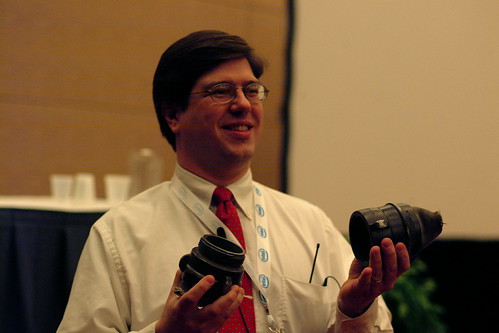While Sun Microsystems was buying MySQL for $1 billion, Rome was guesting the international conference “Boosting innovation and growth by fostering Open Source Software trust and quality”, organized by the EC funded project QualiPSo.
Having the conference among its key themes defining business models to facilitate the use of OSS in the industry, the “Business models and strategies” session – run on the 17th of January, one day after the acquisition – was definitely the right place to ask forum speakers about the deal.
I asked the panelists an opinion about the largest open source software deal ever, and Björn Lundell, chairman of the Open Source Sweden, an industrial Swedish Open Source Association, congratulated with Mårten Mickos, expressing a positive opinion on the deal for the open source market. Basically the first round of impressions was spent to congratulate with the hero of the day. At that point I posed a specific question about the distribution channel, asking them how the merge operation could affect it.
Cédric Thomas, CEO of the OW2 Consortium, said that every small firm, open or not, at a certain point has to find its way to the market, and probably it was great time for MySQL to get sales and financial backing to better deploy its value. On the same line of thought was also Jean-Noel de Galzain, CEO of Wallix.
I was quite disappointed by the fact that none was mentioning how the Sun’s distribution channel is organized by now, and I asked the Forrester’s analyst to tell something about how Sun’s open source business model could change.
Diego Lo Giudice, Principal Consultant at Forrester, said that he couldn’t anticipate Sun’s press releases on the subject, but talking about business models he stated that it’s all about making money, and a check of 1 billion it’s a lot of money!
Talking about open source business models many people and also analysts mention only specific aspects, like licensing, paying little attention on how pieces of the business fit (or not) together. The result is that the company’s strategy, or how a specific firm differentiates itself and deals with the competition, is not effectively described, neither understood.
Last week during the Sun Partner Advantage Executive Summit, organized to share with top partners Sun’s vision for growth, Jonathan Schwartz early morning on the 16th of January sent a physical letter to all partners:
Good morning! It is my extreme pleasure to start your day with some truly exciting news.
Earlier this morning, Sun made a strategic mode designed to provide myriad opportunities for partners and the market at large. We announced our intention to acquire MySQL AB, one of the world’s fastest-growing and most popular databases. [..]
Sun and its partners soon will enjoy unprecedented access to a massive new set of customers. In short, the MySQL database is deployed across every major operating system, hardware platform, geography, industry and application type, and we are committed to working with you to help it gain even greater relevance in the marketplace.
What’s more, we think our operational, sales and financial backing, along with our global services strength, will enhance MySQL’s value proposition to customers by giving them peace of mind to deploy it at scale enterprise — on whichever platforms they so choose.
Anil Gadre later discussed the news with partners, and I would have liked to attend to. While it is pretty clear that Sun is consolidating its position as the largest open source contributor, it is still unclear how Sun’s partners will eventually take advantage of a new set of customers in the database arena. Looking at how MySQL is doing business now, and who and how add value to the ‘M’ in LAMP all over the world, I see many unanswered questions on the table.
Open Source Franchising or not, Sun has to work a lot with its channel to make this move worth well more than the price paid.

 Remember how it all began.. by
Remember how it all began.. by  David Wheeler by
David Wheeler by  Architect Stefano Maffulli at work by
Architect Stefano Maffulli at work by
Reply